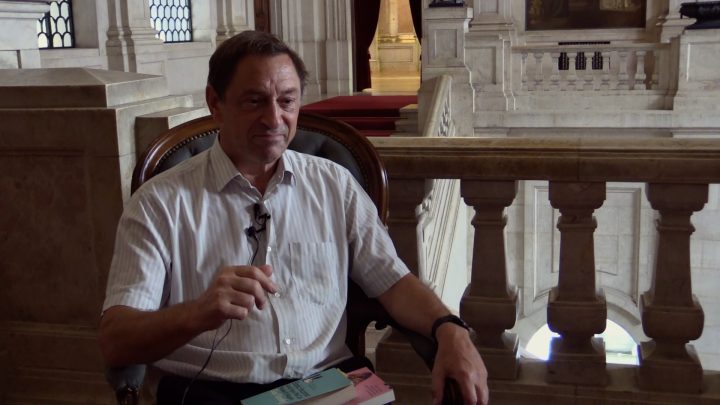For the British economist and co-founder of the Basic Income Earth Network, Basic Income is not a panacea but it helps society to advance to a better life
This is the latest in a series of interviews that we have been publishing and that were the basis of the documentary “UBI, our right to live” by director Álvaro Orús. A project in which this agency, Pressenza, and the group Humanistas por la Renta Básica Universal participated.
The video of the full interview in English is by Álvaro Orús and Mayte Quintanilla
For Guy Standing, British economist and co-founder of the Basic Income Earth Network, the “precariat” is already a worldwide phenomenon. The term, created by himself, refers to a new emerging social class that lives in economic and professional insecurity.
According to Standing, the precariat is composed of three fundamental groups: young people proceeding from immigration who lack a future, educated young people who can’t get a stable job, and elderly people declassed from the working environment. “More and more the educated part of the precariat are looking for a new form of politics, and the Basic Income is seen as part of that new policy. The precariat wants to recreate a sense of the future. A feeling that in society we are building something that is better, something that is ecologically sustainable, something that respects the values of feminists and the values of common goods […], a sense in which we want to rescue life as a pleasure of the experience in which we developed,” he said.
In his book, The precariat – the new dangerous class, published in 2011, Standing defies the introduction of basic income as a fundamental right that could solve many of the precarious issues, which would be an “emancipator policy”. “What we say in effect is that the wealth and income of all of us, you, me, him, is part of the achievements in the efforts of all the ancestors, going back, many generations, and we do not know who contributed more or less, but if we accept private ownership of wealth, we must accept that we must have a society of sharing, of the achievements of our ancestors”, believes Standing.
The great benefit and main reason for the basic income for the economist is that by improving the distribution of income, justice and above all freedom would be improved. “The freedom to have the security in which we develop our abilities, the feeling that I do not have to do everything desperately, I can plan my life, take small risks to improve, spend more time taking care of my elderly mother, spend more time with my children, my partner, spend more time building my community. The basic income is not a panacea, it does not solve all the problems, but it helps us to move forward in a better direction, and I think that many people in the precariat nowadays can think that way”, he adds. The idea has gained solid foundations with the experiments he has done in India and which he tells in his book.
The arguments against the Basic Income, such as “we will make people lazy, it will lead us to bad habits”, were refuted by the pilots and tests that Standing and his team did. For him, people want to improve their lives and basic income allows them that, in addition to being affordable. The big question is politics and, therefore, the need for the precariat’s pressure on politicians. “I think we are actually the initial face of this new policy and there is nothing to stop us […] We must say No! We must say that we want a better system and we are willing to say it and act accordingly”, said Standing.
The Universal Basic Income would not be a panacea, but considered as part of the progressive strategy of society, according to Standing. The basic income would allow us to have control over our work and to work in a way that reflects our values and eliminates the stress of these tensions.
For Guy Standing a good society must want everyone to have security, the option to develop. That’s why he created the movement, because since he was young he had that feeling and was motivated to find a better system that would help us to walk in this direction.






